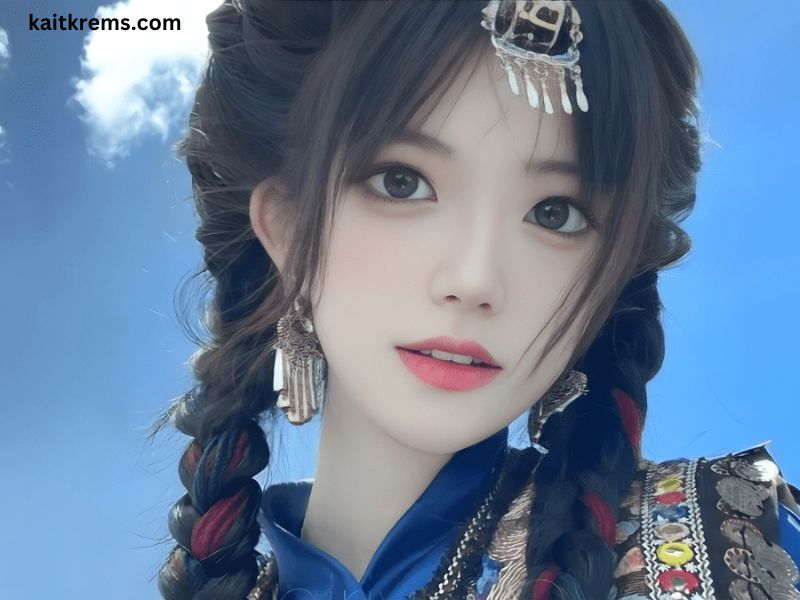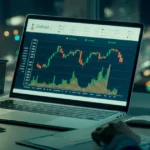In the sprawling tapestry of fictional universes, villains often capture the imagination just as much, if not more, than their heroic counterparts. One such figure whose narrative arc has taken a compelling twist is Dezmall. Originally a minor antagonist in a lesser-known series, Dezmall has evolved into a central figure, embodying the complex interplay of power, ambition, and moral ambiguity. This article explores the rise of Dezmall, tracing the evolution of his character, motivations, and the broader implications of his ascent in contemporary storytelling.
Origins: A Background of Betrayal
Dezmall’s origins are steeped in a narrative of betrayal and loss. Born in the desolate city of Noxara, a place rife with poverty and crime, he grew up amidst the struggles of the downtrodden. His parents, once idealistic revolutionaries, were betrayed by those they considered allies, leaving Dezmall orphaned and alone. This early trauma shaped his worldview, embedding in him a deep-seated belief that power was the only means to ensure safety and control.
Unlike many villains who are motivated purely by malice, Dezmall’s drive stems from a desire to prevent the suffering he experienced as a child. His early experiences fostered an understanding of betrayal and loss that would later inform his ruthless approach to power. This complex background allows readers and viewers to empathize with his motivations, blurring the lines between heroism and villainy.
The Transformation: From Antagonist to Anti-Hero
Dezmall’s initial appearance in the series was that of a cunning strategist, a shadowy figure manipulating events from behind the scenes. His cunning intellect and resourcefulness made him a formidable opponent for the heroes. However, what set him apart from typical villains was his capacity for change. The narrative arc of Dezmall is not static; it is a dynamic journey of transformation.
As the series progressed, Dezmall began to evolve. Faced with the complexities of his goals and the moral dilemmas they entailed, he found himself questioning his methods. The writers skillfully wove in moments of vulnerability, revealing a character torn between ambition and the remnants of his childhood idealism. This internal conflict resonated with audiences, leading to a surge in popularity and a re-evaluation of his role in the story.
Allies and Enemies: The Web of Power
In his ascent, Dezmall formed a coalition of unlikely allies. His ability to inspire loyalty—born from shared experiences of loss and betrayal—allowed him to gather a diverse group of followers. Among them were former enemies, each drawn to his vision of a new order. This alliance shifted the power dynamics within the narrative, complicating the heroes’ attempts to thwart his plans.
However, Dezmall’s rise also attracted formidable enemies. The heroes, who once saw him merely as an obstacle, began to recognize him as a serious threat to their ideals. This conflict introduced a rich layer of tension to the story, as both sides grappled with their respective ideologies. The heroes, who often relied on traditional values of justice and morality, found themselves at a crossroads, forced to confront the possibility that Dezmall’s vision, while ruthless, might ultimately lead to a more stable world.
The Ideological Clash: Vision vs. Reality
At the heart of Dezmall’s narrative is an ideological clash that resonates deeply with contemporary themes of governance and societal structure. Dezmall’s vision for a new order is predicated on the belief that true stability can only be achieved through strength and control. He often justifies his brutal methods by citing the failures of previous leaders who prioritized compassion over pragmatism. In his eyes, the ends justify the means, a philosophy that challenges the traditional notions of heroism.
This ideological conflict is central to the story’s tension. The heroes, often portrayed as champions of justice, must confront the uncomfortable truth that their approach may not be effective in a world rife with corruption and betrayal. As Dezmall’s influence grows, the lines between right and wrong blur, forcing characters and audiences alike to reconsider their own beliefs about power, morality, and the costs of peace.
The Mastermind: Strategy and Manipulation
Dezmall’s rise is not merely a result of charisma; it is a testament to his intellect and strategic prowess. He is a master manipulator, adept at exploiting the weaknesses of his adversaries. This aspect of his character adds a layer of complexity to the narrative, as audiences are often left questioning the morality of his tactics. His strategic mind allows him to stay several steps ahead of his opponents, making him a formidable foe.
Throughout the series, Dezmall orchestrates a series of elaborate schemes, using misinformation and psychological tactics to undermine his enemies. This not only showcases his cunning but also serves as a commentary on the nature of power and control. In a world where perception often shapes reality, Dezmall’s ability to manipulate public opinion and leverage fear becomes a critical tool in his ascent.
The Climax: A Battle for Ideals
As Dezmall’s power grows, so too does the tension between him and the protagonists. The climactic battles are not merely physical confrontations; they are ideological skirmishes that force characters to confront their beliefs. The heroes, who have spent much of the series fighting against Dezmall, must grapple with the reality that his vision might bring about a different kind of peace—one achieved through domination rather than cooperation.
The battles themselves are meticulously crafted, blending action with emotional stakes. As the protagonists face off against Dezmall and his forces, the stakes are raised. Each encounter becomes a reflection of their conflicting ideologies. The resolution of these conflicts does not come from simple victory or defeat; instead, it leaves room for ambiguity, allowing the audience to ponder the true cost of heroism and villainy.
The Aftermath: Legacy and Influence
The rise of Dezmall culminates in a profound transformation of the narrative landscape. Whether he emerges victorious or faces defeat, his influence reverberates through the story long after the climactic events. The characters who once opposed him must now navigate a world forever changed by his actions and ideologies.
In the aftermath, discussions around Dezmall’s legacy become central to the series. Is he a villain, or has he unwittingly become a catalyst for change? The debates among characters—and within the audience—reflect broader societal questions about leadership, governance, and the moral complexities of power.
Conclusion
Dezmall’s rise from the shadows to the forefront of the narrative serves as a powerful exploration of the complexities of villainy. His journey encapsulates themes of betrayal, ambition, and the blurred lines between right and wrong. As a character, Dezmall resonates with contemporary audiences, prompting reflections on the nature of power and the often ambiguous motivations behind those who seek it.
In a world that increasingly grapples with the moral complexities of leadership, Dezmall stands as a testament to the idea that villains can be as compelling—and perhaps as relatable—as heroes. His story challenges us to reconsider our definitions of good and evil, ultimately enriching the tapestry of modern storytelling. As the narrative of Dezmall continues to unfold, one thing remains clear: his rise is not merely about individual ambition but a mirror reflecting the intricacies of our own society.






